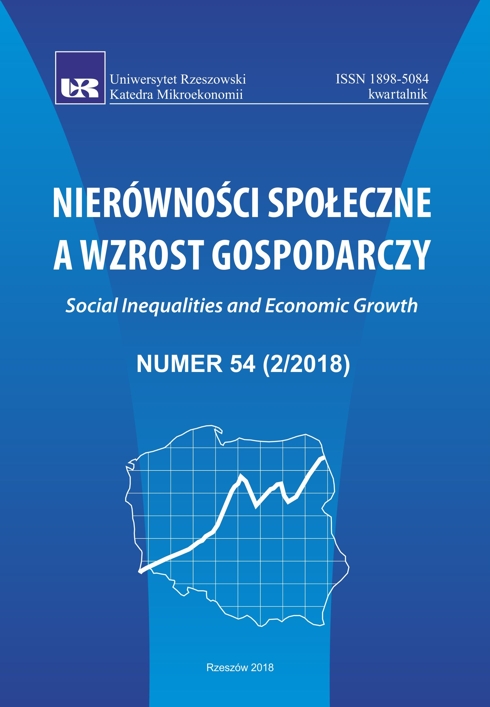Fair remuneration as a determinant of integrated development
DOI:
https://doi.org/10.15584/nsawg.2018.2.27Keywords:
minimum wage, human capital, fair remunerationAbstract
The aim of this study is to present and attempt to estimate the minimum equitable remuneration on each level of education in Poland as one of the determinates of integrated development. In the essence of integrated development, economic situation of an individual is as significant as their environment: political, legal, institutional, social and cultural. A fair minimum wage protects human capital from dispersion, rebalances its losses due to the essence of life, and enables the reconstruction of human capital. A man gathers and increases his personal capital throughout his life. The principles of paying human capital are determined by the nature of capital. Capital is not created out of nothing and has its sources, which allow it to be valued in monetary units. The value of human capital consists of capitalized living costs and capitalized costs of professional education for people with higher education. Capital located in the human being is reduced by illness, accidents, unemployment, wars and other incidents. The employee’s human capital also disperses as a result of work-related effort, and also due to the passing time. Remuneration is the compensation for this loss. The amount of remuneration should be derived from the application of economic constant of potential growth (SEPW). Empirical studies confirm that this constant is around 8% per year. When the level of capital payment falls below 8%, the value of human capital of employees will decrease. This is a phenomenon that is perceived by the employed, it creates a sense of injustice, which then causes social tensions and dissatisfaction, which adversely affects the development of the entire country. Using the theory of human capital, it is possible to estimate fair remuneration on different levels of education and at different times of work, as evidenced by this study.Downloads
Download data is not yet available.
Downloads
Published
2020-11-13
How to Cite
Oliwkiewicz, B. (2020). Fair remuneration as a determinant of integrated development. Social Inequalities and Economic Growth, 2(54), 365–376. https://doi.org/10.15584/nsawg.2018.2.27
Issue
Section
Articles
License
Copyright (c) 2018 University of Rzeszow

This work is licensed under a Creative Commons Attribution-ShareAlike 4.0 International License.


